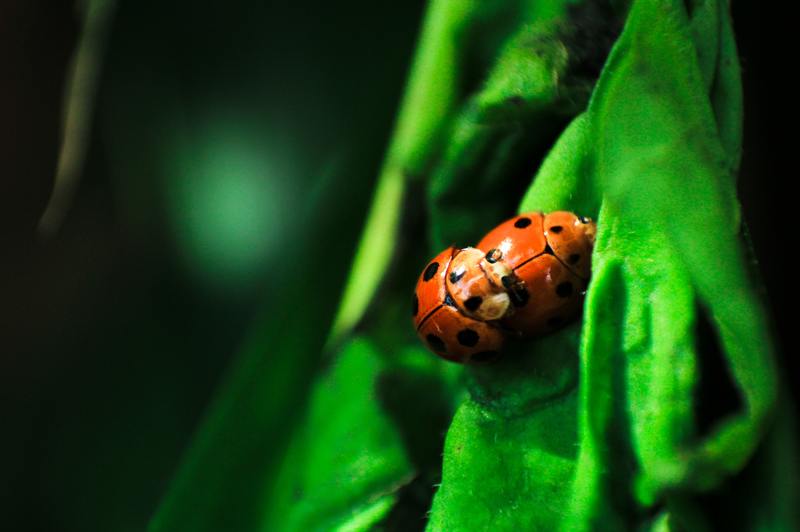It’s essential to understand the role of microorganisms in biological pest control. Chemical pest control products can negatively affect the environment, especially after constant use.
Using natural pest control solutions will help you protect the environment and your surroundings. Please read this article to learn more about biological pest control and how microorganisms can affect it.

What Are Biological Pesticides?
Biological pesticides are natural pest control solutions that come from natural sources. People usually get these pesticides from minerals, plants, animals, or bacteria.
These pesticides are becoming popular since they are safer to use and offer sufficient protection. Check out this guide to learn what is biological pest control.
Using microorganisms is a popular biological pest control method. These creatures can easily target specific problem areas, so there will be better pest control performance.
Types Of Biological Pest Control
Biological pest control can come in three aspects, depending on how you want to solve your problem. Here are the ways you can naturally control pests in your garden:
1. Importation
This process means you will introduce natural pest predators into a habitat. People have been using this method for years, and it helps to control the recurring pest population.
2. Augmentation
Sometimes, it’s challenging to find a high population of natural predators; that’s when you must “augment” or release alternative predators on your pests.
This strategy is where microbial pest control helps. You can fight off threats like fungi or harmful bacteria with your microorganisms.
3. Conservation
This method means you must preserve the already existing predatory population. Don’t interfere with the animal’s habitat and use natural chemicals as much as possible.
Follow these methods to have healthy and thriving garden space! You will keep your plants safe and ensure that the surroundings are clean.
Why Should You Choose Biological Pest Control?
You might be wondering, why spend so much effort finding natural predators to handle your pests? Why not just drop by your local hardware store and buy some chemical pesticides?
Read this article to learn what’s the difference between chemical and biological control for pests.
Here are reasons why using biopesticides is better:
1. It targets specific areas
Microorganisms in biological pesticides target only one specific pest. This makes pest control more concentrated, and you don’t have to worry about affecting nearby creatures.
2. It’s better for the environment
These pesticides don’t use harmful chemicals, so they won’t affect other creatures in your garden. The pesticides won’t contaminate your soil or water since the microorganisms decompose quickly and aren’t harmful to humans.
Biological pesticides can also make a significant impact with a small amount, so you will get a better value for your money. Your pesticide will last you longer than normal chemical-based ones.
3. It’s more suitable for pest control
Since biological pesticides use natural predators, You will be sure to have high-quality pest control that will eliminate all your unwanted guests.
Biological pest control is a better option compared to synthetic, chemical pesticides. You will keep your surroundings safe for your kids, pets, and other harmless creatures.
All About Microbial Pesticides
Microbial pesticides are becoming popular for industrial and private use. It uses genetically altered viruses, algae, fungi, or bacteria that naturally target harmful pests.
Advantages
Microbial pesticides are a safer choice compared to their synthetic counterpart. More people choose this pest control method due to its advantages.
1. It’s non-toxic and leaves no residue
These microorganisms are non-pathogenic to humans and other wildlife. They don’t leave any hazardous residue and can be used in agriculture.
Microbial pesticides may even enhance plant growth by giving the soil nutrients. You will see increased crop yield with this pest control method.
2. These pesticides target specific insects
This pesticide is only toxic to the targeted pest, so other beneficial organisms won’t be affected.
Types
There are various microbial pesticides you can use for your garden or crops. Always check beforehand which one is more appropriate before you purchase it.
1. Entomopathogenic fungi
These fungi can regulate insect populations in agriculture. They penetrate the insect’s cuticle and produce toxins inside its body.
Entomopathogens work well against mosquitoes, even adult Aedes aegypti and Aedes albopictus.
2. Protozoa
These pathogens can affect broad insect populations, but they are slow-acting compared to other microbes. They primarily reduce insect offspring rates, so they aren’t suitable as regular insecticides.
3. Nematodes
These microscopic roundworms use insects as hosts and can kill them over time. They can infect various insect species.
4. Viral pesticides
Baculovirus can target 100 insect species and can kill them through ingestion. They can only control a few sets at a time, so it has a slow reaction time.
Scientists are trying to improve baculovirus tablets to make them more durable and functional.
5. Bacterial biopèsticides
These bacteria are the most popular biological pesticide on the market. It targets specific flies, mosquitoes, beetles, moths, and butterflies through ingestion to control their population.
These pesticides can survive for a long time in the open. They are more affordable than other microbial pest control products.
Conclusion
Use more natural pest control options to avoid contamination and protect the environment. You will have better pest control results if you understand the role of microorganisms in biological pest control.
You will leave a smaller footprint on your surroundings with these pesticides.
